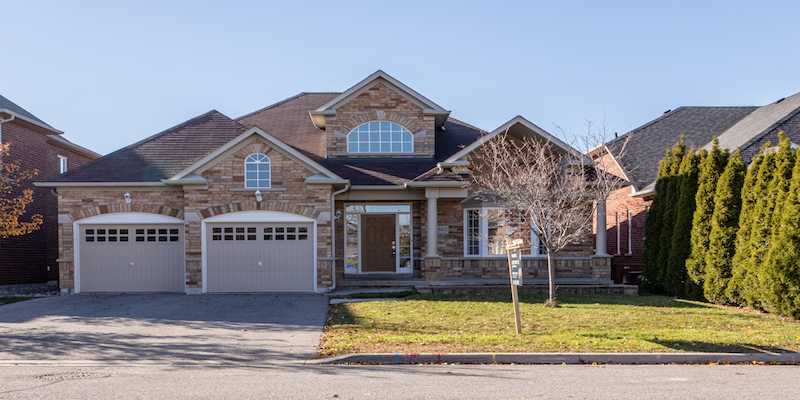In today’s competitive real estate market, many buyers and sellers encounter terms like “accepting backup offers” and “pending” when looking at property listings. While both of these terms relate to the status of a home, they represent different stages in the sale process. Understanding these distinctions can help both buyers and sellers make informed decisions when navigating their real estate journey.

What Does “Pending” Mean in Real Estate?
When a property is listed as “pending,” it means that the seller has accepted an offer from a buyer, and the sale is moving forward. However, this doesn’t mean the deal is finalized yet—there are still a number of steps that must be completed before closing.
Here’s what typically happens during the pending stage:
- Inspection and Appraisal: The buyer usually conducts a home inspection and appraisal to ensure the home is in good condition and worth the offered price.
- Financing: The buyer’s mortgage application is finalized and approved during this stage.
- Contingencies: If the offer is contingent on certain conditions, such as the sale of the buyer’s current home, those must be met.
The pending status suggests that, barring any issues that arise during the inspection or financing process, the home will likely be sold to the buyer who has made the offer. In short, the property is off the market, but not yet fully closed.
What Does “Accepting Backup Offers” Mean?
When a listing indicates that the seller is “accepting backup offers,” it means that while they have already accepted an offer, they are open to receiving and considering additional offers should the current deal fall through.
This is an important status for both buyers and sellers to understand:
- For Buyers: If you’re interested in a property that’s marked as “accepting backup offers,” it means that the seller has already agreed to a sale, but you can submit an offer that may be considered if the primary deal falls apart. For example, if the buyer’s financing falls through or they back out after the inspection, your backup offer could become the primary one.
- For Sellers: Accepting backup offers can be a strategic move if you want to ensure that your home doesn’t return to the market if the current deal collapses. It helps maintain momentum and may lead to a smoother transaction if issues arise with the initial offer.
Key Differences Between “Accepting Backup Offers” and “Pending”
While both terms involve ongoing negotiations, there are some significant differences:
- Risk of the Deal Falling Through:
- Pending: The buyer’s offer is accepted, and unless something significant happens, such as financing falling through or the inspection revealing major issues, the deal will likely go through.
- Accepting Backup Offers: The deal is still pending but comes with the possibility that the first buyer may back out or fail to close. In this case, a backup offer would be used as a safety net to keep the sale on track.
- Flexibility for Buyers:
- Pending: Once a property is pending, buyers can no longer submit offers unless the deal falls apart. There is no opportunity for negotiation or competition.
- Accepting Backup Offers: Buyers still have the opportunity to submit an offer and compete for the home if the current deal falls through.
- Seller’s Options:
- Pending: The seller is typically focused on finalizing the sale with the accepted buyer and isn’t actively considering other offers.
- Accepting Backup Offers: The seller is still open to receiving offers, even though they have already accepted one. This gives them the opportunity to secure a backup plan.
When Is It Ideal to Accept Backup Offers?
Sellers often choose to accept backup offers if they want additional security in case their accepted offer doesn’t work out. This is particularly common in competitive markets where homes sell quickly and there’s a higher chance of deals falling apart due to financing or inspection issues. By accepting backup offers, the seller ensures that the home doesn’t linger on the market for long if the current deal collapses.
For buyers, it may be worth submitting a backup offer if you’re particularly interested in a property. Even though it may not be your first choice, having a backup offer in place can give you a shot at getting the home should the first buyer’s offer fail.
How to Navigate Accepting Backup Offers vs Pending as a Buyer
If you’re a buyer and see a property listed as “pending” or “accepting backup offers,” here’s how you can navigate each scenario:
- Pending: Keep an eye on the property and reach out to your agent to inquire if it becomes available again. In some cases, deals fall through, and the property may return to the market. You can also ask the seller’s agent if they are still accepting backup offers.
- Accepting Backup Offers: If you’re interested in the home, submit a backup offer to ensure you’re next in line should the primary offer fall through. Be sure to ask your agent for advice on submitting a competitive offer that’s attractive to the seller.
Conclusion
Understanding the difference between “accepting backup offers” and “pending” is essential for both buyers and sellers to navigate the complexities of the real estate market. As a seller, accepting backup offers provides peace of mind and the potential for a smooth transaction. As a buyer, it’s important to know your options and stay proactive by considering backup offers if the home you want is already under contract.
By being informed and strategic, you can avoid missing out on your dream home and make confident decisions during the buying or selling process. Happy house hunting!
P.S. Want to sell your house as-is, with no repairs and no tours and no realtor closing costs? Try PropertyPal!
